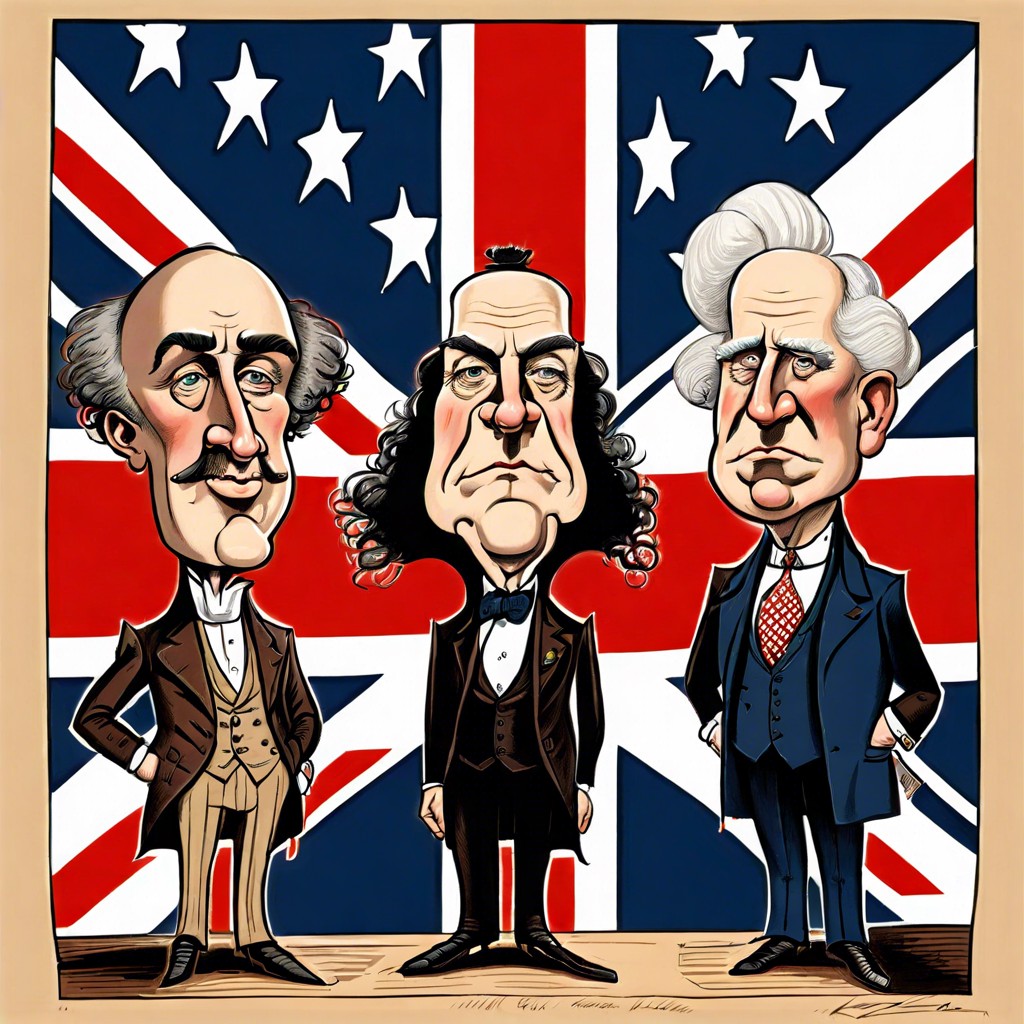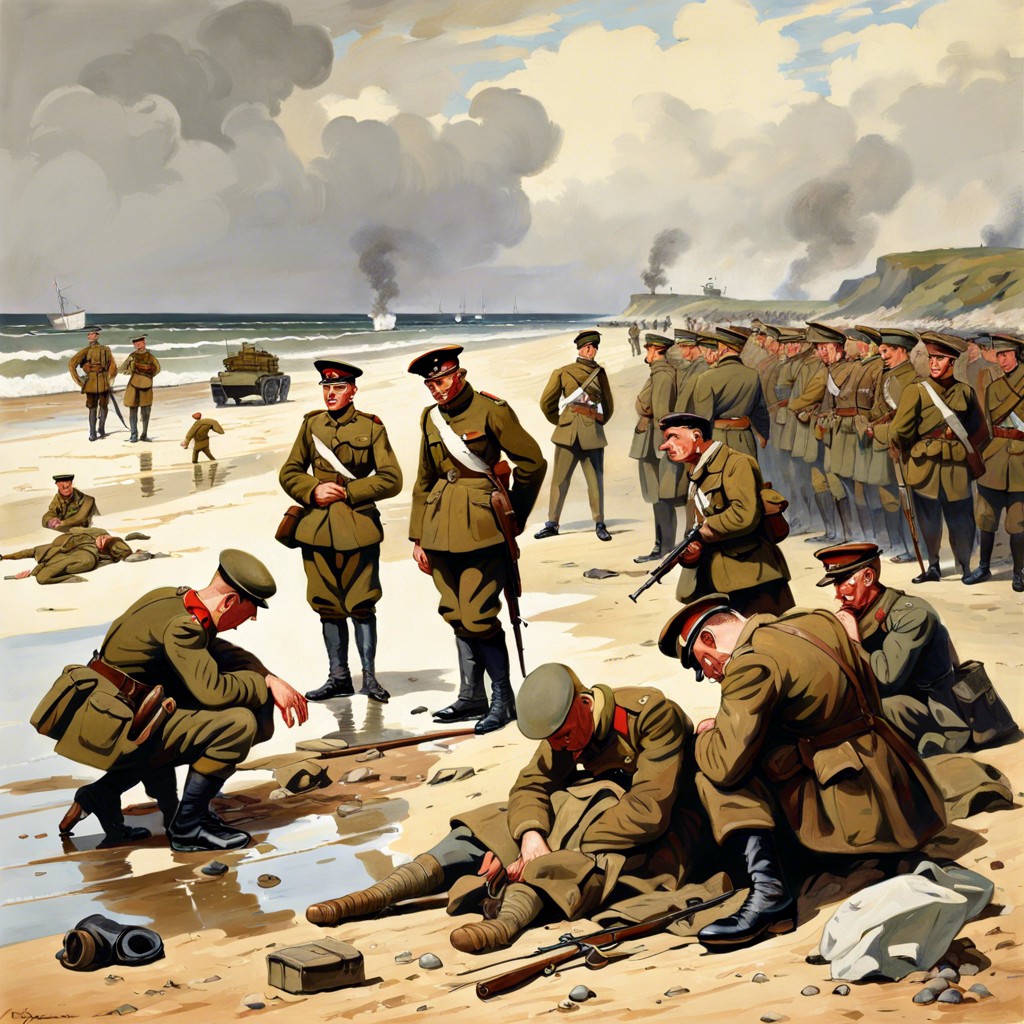Imagine a world where Britain won the Revolutionary War: Discover how this alternate history could have shaped today’s America and its global role.
Ever wondered what life would be like if Britain had won the Revolutionary War? Picture sipping tea in Boston while discussing the Queen’s latest fashion choices. Dive into this thought experiment where we explore how American politics, global colonial dynamics, cultural identity, economic landscapes, and even technological advancements could have taken a wildly different path. Strap in; history is about to zig where it once zagged.
Key takeaways:
- American provinces under British rule, no Constitution, British oversight.
- Expanded British Empire, stifled colonial rebellions worldwide.
- Cultural shift with British influence, cricket, Anglicanism, literature changes.
- Economic constraints, dependence on Britain, limited innovation and growth.
- Different American expansion, British-led innovation, quirky governance quirks.
Impact On American Political Structure

Picture it: Governor Generals swanning around instead of Presidents. Parliament calling the shots from across the pond.
First up, American independence? Never heard of it. States would be provinces, reporting directly to His Majesty’s government. Forget the Senate and House of Representatives; we’d be cozying up with the British Parliament.
Local governance would play second fiddle to British oversight. Townhall debates would have a distinctly British flair, with “hear, hear” replacing “yea or nay.”
Say goodbye to the Constitution as we know it. Instead, a charter or some British legal framework would govern us, likely less democratic and more hierarchical.
Our legal system? More wigs and robes. The Supreme Court might be replaced by a colonial high court with final appeals made to London. And yes, we’d still be paying taxes on our tea.
Influence On Global Colonial Dynamics
A British victory in the Revolutionary War would have sent ripples through the global stage, much like a teapot explosion at a very crowded tea party. For one, Britain’s firm hold on America could have emboldened its other colonial ambitions. We might have seen an even larger British Empire, with more dominance in Asia and Africa.
The domino effect of an undefeated Britain would probably dissuade other colonies from rebelling. Imagine an 18th-century game of Risk where the British keep stacking their troops, and suddenly, everyone else is too nervous to roll the dice.
Additionally, major European powers like France and Spain, who supported the American cause, might have reconsidered their strategies. Without the American precedent of a successful rebellion, colonial movements worldwide might lack a key inspiration. The idea of freedom could be exchanged for more tea sets and powdered wigs.
Changes in Cultural and Social Identity
Imagine a young America still singing “God Save the Queen.” The cultural fabric of the colonies would be woven quite differently. Instead of the Stars and Stripes, we’d perhaps see the Union Jack on t-shirts and coffee mugs.
Accents might be more Downton Abbey, less Texas twang. And sports? Wave goodbye to American football; cricket could’ve been the nation’s favorite pastime. Picture tailgating with cucumber sandwiches instead of hot dogs.
Religion would also play a different medley. Anglicanism would’ve held a stronger sway, possibly stifling the religious pluralism we see today.
Educationally, literature would likely lean more towards Shakespeare and Dickens. And let’s not forget, Thanksgiving might’ve evolved into a quaint celebration of British culinary prowess—think roast beef and Yorkshire pudding instead of turkey and cranberry sauce.
Social norms and manners? There’d be a bit more “Please” and “Thank you,” and a lot less “Get ‘er done.” Imagine a country where the stiff upper lip is more common than the broad American smile.
Economic Consequences for the Colonies
If Britain had triumphed, the colonies might never have experienced the economic freedom they eventually craved. No Boston Tea Party tantrums, but they’d still be sipping tea with a hefty British tax. Imagine Uncle Sam still being tethered to the Crown’s apron strings. Trade regulations would choke innovation.
Colonial businesses would face stiff competition from British manufacturers. Bye-bye flourishing Silicon Valley, hello struggling artisan alley. And forget that “land of opportunity” spiel. The British would likely hoard resources, stifling local enterprise.
Agricultural exports? Controlled by Britain. Cotton, tobacco, and other cash crops would be more profit for London, less growth for locals. Local economies would become stagnant, dependent on the whims and fancies of British policies.
Lastly, there’d be fewer avenues for social mobility. Accumulation of wealth and the American Dream? More like British Reality Check. From skyscrapers to cottage industries, the economic landscape would be unrecognizable—an echo of a British past rather than a new world future.
Alternative Paths for American Expansion and Innovation
With Britain at the helm, American expansion could have looked vastly different. Imagine a North America with cities named after British nobilities. Instead of westward expansion, perhaps there’d be more northern or southern pushes to align with British interests.
Without the frontier spirit, innovation might’ve taken a twist. Picture British engineers rather than American inventors leading the charge. Benjamin Franklin inventing… crumpet toasters?
Local governance would’ve added a quirky layer. Town meetings discussing the tea quality rather than revolution would be quite the sight.
A cricket match in every town square? Now that’s a game-changer.




